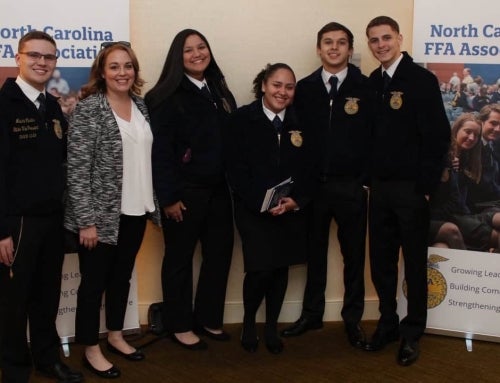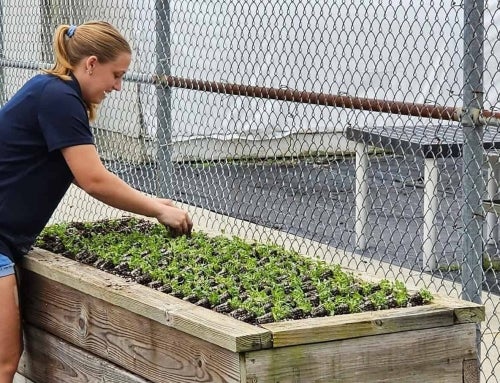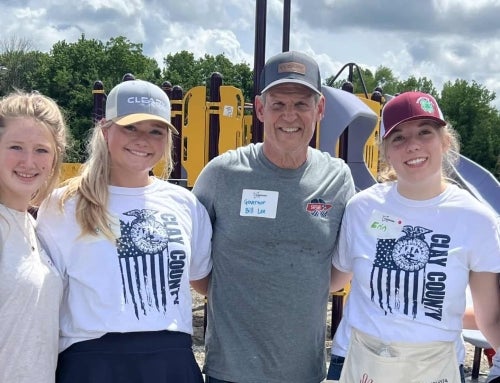Politics was never part of the plan for Jasmine Blackwater-Nygren.

Jasmine Blackwater-Nygren (right) visited Washington, D.C., in 2011 with fellow members of the Monument Valley FFA Chapter.
Instead, Blackwater-Nygren, a member of the Navajo Nation, wanted to work for the tribe. She left the reservation to attend college, earning an undergraduate degree from Stanford University and a law degree from Arizona State, and returned to her home in Red Mesa, Ariz., with plans to work as a lawyer for the tribe.
Her plans changed while she was waiting to take the Navajo Nation bar exam in 2021.
Arlando Teller, the former state representative who served Arizona Legislative District 7, accepted a position with the Biden administration, leaving his seat open. Friends encouraged Blackwater-Nygren to fill the vacancy.
“I’ve always had this sense of commitment to the Navajo people,” she says. “After talking with family, I realized I was in a really good position to take this on.”
Blackwater-Nygren was sworn in to represent Legislative District 7 on Feb. 11, 2021. At age 25, she is the youngest member of the Arizona House of Representatives.

The district includes nine Native American tribes, and 64% of the voters are Native American. Blackwater-Nygren wants to ensure native voices and priorities are represented in the statehouse.
“We have unique connections to land and place, and the lived experience of growing up on the reservation is so different,” she explains. “In my time in the legislature, I find myself educating others about the Navajo perspective and how the laws will impact native communities and tribes. It’s so important that we, as native legislators, bring that to the forefront.”
Blackwater-Nygren is an alumna of the Monument Valley FFA Chapter, the chapter with the largest Native American population in the United States. In the process of showing livestock, participating in career development events, holding the leadership roles of chapter reporter and vice president, she learned the importance of commitment to service.
In 2011, Blackwater-Nygren traveled to Washington, D.C., as part of FFA Native Voices, a national program celebrating Native American heritage and inclusion, and learned firsthand the importance of advocating for native issues. It’s a feeling she still carries with her.
“FFA really changed my trajectory, and I wouldn’t be where I am today without the experiences that FFA provided me,” she says. “I realized that being a legislator allowed me to be an educator and advocate for our issues.”












